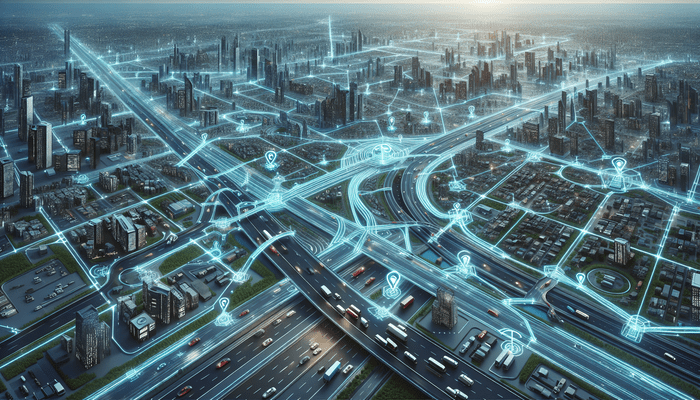In today’s fast-paced world, keeping track of vehicles, whether for business or personal use, has become increasingly important.
As companies like Trackhawk GPS revolutionize the way we manage our fleets and ensure the safety of our loved ones on the road, the technology behind GPS tracking has evolved to offer numerous benefits and applications in our daily lives.
Let’s delve into the world of GPS tracking and explore its many uses, from fleet management to family safety, and how it’s shaping our modern landscape.
The rise of GPS tracking in modern fleet management
For businesses that rely on vehicle fleets, GPS tracking has become an indispensable tool. By providing real-time location data, these systems help companies increase efficiency, reduce operational costs, and improve driver safety and accountability.
Managers can optimize routes, monitor driver behavior, and quickly respond to any issues that arise, ultimately leading to a more streamlined and productive fleet. In an increasingly competitive landscape, businesses that leverage GPS tracking solutions and streamline your fleet management with commercial GPS solutions, often find themselves one step ahead of the curve.
Empowering families and individuals through vehicle tracking
GPS tracking isn’t just for businesses; it also offers a range of benefits for families and individuals. Parents of teen drivers can enjoy peace of mind, knowing they can monitor their child’s location and driving habits. In the event of theft, GPS tracking can aid in vehicle recovery, saving owners from the headache and expense of lost property.
For families with elderly drivers, tracking solutions provide a way to ensure their safety and quickly respond to any emergencies. For anyone looking to optimize their daily commute or errands, GPS tracking can help identify the most efficient routes and avoid traffic congestion.
In a world where safety and efficiency are paramount, personal GPS tracking solutions offer a valuable tool for navigating modern life. As one father put it, “Having GPS tracking on my daughter’s car has given me so much more peace of mind. I can rest easier knowing that I can check on her location and make sure she’s safe, even when she’s out on her own.”
As with any powerful technology, GPS tracking comes with its own set of ethical considerations. Businesses must strike a balance between employee privacy and company oversight, ensuring that tracking policies are transparent and fair.
Data security is also a paramount concern, as GPS data can be sensitive and must be protected from unauthorized access. By establishing clear policies and obtaining employee consent, companies can navigate these ethical challenges and harness the benefits of GPS tracking without compromising trust or privacy.
Geofencing: a game-changer for delivery and logistics
One of the most exciting applications of GPS tracking is geofencing, a technology that allows businesses to create virtual boundaries around specific locations. Geofencing has become a game-changer for delivery and logistics companies, allowing them to streamline operations and improve customer satisfaction.
By setting up geofences around delivery zones, companies can optimize routes, reduce fuel consumption, and ensure timely deliveries. Geofencing also enables businesses to automate inventory management, alerting them when vehicles enter or leave designated areas and triggering restocking processes as needed.
As e-commerce continues to grow and customer expectations rise, geofencing offers a powerful tool for companies looking to stay ahead of the curve.
Embracing the AI-driven future of GPS tracking
As artificial intelligence continues to advance, the future of GPS tracking looks increasingly bright. By harnessing the power of big data and machine learning, businesses can unlock new insights and optimize their operations in once unimaginable ways.
Predictive maintenance, for example, allows companies to anticipate vehicle issues before they occur, reducing downtime and saving money on repairs. AI-powered route optimization can take into account real-time traffic patterns and weather conditions, ensuring that vehicles always take the most efficient path.
By integrating GPS tracking with other IoT devices, businesses can create truly seamless and intelligent fleet management systems. One industry expert notes, “The combination of GPS tracking and AI is powerful.
By leveraging these technologies together, businesses can gain a level of visibility and control over their operations that was once impossible. It’s an exciting time to be in the fleet management space.”
As GPS tracking technology continues to evolve, its applications and benefits will only continue to grow. From empowering businesses to streamline their operations to helping families stay safe and connected, the possibilities are endless.
By staying informed about the latest developments and innovations in this space, we can all harness the power of GPS tracking to navigate the challenges and opportunities of the modern world.

